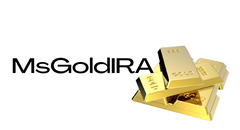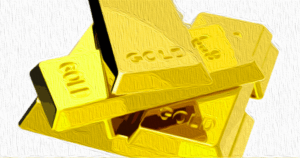
Michael Howell, the founder and CEO of Crossborder Capital, a London-based independent research and investment company, has offered a unique perspective on the current state of the economy. Contrary to the prevailing belief of monetary tightening, Howell believes that there is a rise in liquidity that will have a positive impact on stocks, gold, and cryptocurrencies.
Michael Howell: Analyzing Rising Global Liquidity and Its Market Impact
Michael Howell, a veteran in global finance and economics, has become a prominent figure in analyzing global liquidity trends and their impact on markets. As the founder and CEO of Crossborder Capital, Howell brings a deep understanding of international finance to the table. He has previously held positions as the Head of Research for Baring Securities and the Research Director of Solomon Brothers.
In a recent appearance on Forward Guidance, Howell discussed the current macroeconomic landscape and emphasized the continued rise in global liquidity. He highlighted the positive effects of this liquidity on assets such as stocks, gold, and cryptocurrencies. The episode provides valuable insights into the subject and is highly recommended.
Contrary to popular belief, Howell argues that the Federal Reserve has been injecting liquidity into the markets in a subtle manner. This contradicts the narrative of monetary tightening that has dominated headlines. Despite a reduction in the Fed's balance sheet, Howell points out that Fed liquidity actually increased by 12 to 15% last year. This trend is not a temporary one but part of a longer-term pattern of monetary inflation, as central banks globally engage in what Howell describes as shadow quantitative easing and shadow yield curve control.
Howell highlights the significance of the draining of the Reverse Repo (RRP) facility and the Bank Term Funding Program (BTFP) in contributing to the rise in Fed liquidity. He predicts that central bank liquidity will continue to unlock, especially once the RRP is fully drained, and suggests the possibility of the renewal of the BTFP.
The complexity of the situation is further amplified by the U.S. Treasury's strategic decision to shorten the maturity of its debt issuance. Howell explains that this move has mechanically reduced the private sector's liquidity needs to absorb government paper, particularly benefiting the banking sector in managing its systemic overexposure to duration.
Howell suggests that these factors may indicate a transition from a rebound phase to a calm phase. During this calm phase, the financial sector and high-beta securities, such as cryptocurrencies, tend to perform well.
In terms of cryptocurrencies, Howell believes that they may experience particularly positive influences. He states that cryptocurrencies could be the preferred hedge against monetary inflation for the younger generation, aligning with the increasing interest in digital assets among younger investors. If this holds true, cryptocurrencies could surpass gold as the preferred investment vehicle for younger investors.
What are your thoughts on Howell's argument that a rise in global liquidity will generally benefit assets such as stocks, gold, and cryptocurrencies? Share your opinions in the comments section below.
Frequently Asked Questions
What is the best way to hold physical gold?
Gold is money. Not just paper currency. It's an asset that people have used for thousands of years as a store of value, a way to keep wealth safe from inflation and economic uncertainty. Gold is a part of a diversified portfolio that investors can use to protect their wealth from financial uncertainty.
Today, Americans prefer precious metals like silver and gold to stocks and bonds. While owning gold doesn't guarantee you'll make money investing in gold, there are several reasons why it may make sense to consider adding gold to your retirement portfolio.
Another reason is that gold has historically outperformed other assets in financial panic periods. The S&P 500 dropped 21 percent in the same time period, while gold prices rose by nearly 100 percent between August 2011-early 2013. During those turbulent market conditions, gold was among the few assets that outperformed stocks.
One of the best things about investing in gold is its virtually zero counterparty risk. Your stock portfolio can fall, but you will still own your shares. However, if you have gold, your value will rise even if the company that you invested in defaults on its loans.
Gold provides liquidity. This allows you to sell your gold whenever you want, unlike many other investments. Gold is liquid and therefore it makes sense to purchase small amounts. This allows you take advantage of the short-term fluctuations that occur in the gold markets.
What are the benefits of a Gold IRA?
An Individual Retirement Account (IRA) is the best way to put money towards retirement. It will be tax-deferred up until the time you withdraw it. You are in complete control of how much you take out each fiscal year. There are many types to choose from when it comes to IRAs. Some are better for those who want to save money for college. Others are made for investors seeking higher returns. For example, Roth IRAs allow individuals to contribute after age 59 1/2 and pay taxes on any earnings at retirement. However, once they begin withdrawing funds, these earnings are not taxed again. This type account may make sense if it is your intention to retire early.
An IRA with a gold status is like any other IRA because you can put money into different asset classes. Unlike a regular IRA where you pay taxes on gains, a gold IRA doesn't require you to worry about taxation while you wait to get them. For people who would rather invest than spend their money, gold IRA accounts are a good option.
Another benefit to owning IRA gold is the ability to withdraw automatically. This eliminates the need to constantly make deposits. To make sure you don't miss any payments, you can also set up direct deductions.
Finally, gold remains one of the best investment options today. Because it isn’t tied to any specific country, gold’s value tends to stay stable. Even during economic turmoil, gold prices tend to stay relatively stable. As a result, it's often considered a good choice when protecting your savings from inflation.
What are the pros & con's of a golden IRA?
The main advantage of an Individual Retirement Account (IRA) over a regular savings account is that you don't have to pay taxes on any interest earned. This makes an IRA a great choice for people who are looking to save money but don’t want to pay any tax on the interest earned. This type of investment has its downsides.
To give an example, if your IRA is withdrawn too often, you can lose all your accumulated funds. You may also be prohibited by the IRS from making withdrawals from an IRA after you turn 59 1/2. If you do withdraw funds from your IRA you will most likely be required to pay a penalty.
The downside is that managing your IRA requires fees. Many banks charge between 0.5%-2.0% per year. Others charge management fees that range from $10 to $50 per month.
If you prefer your money to be kept out of a bank, then you will need insurance. Most insurers require you to own a minimum amount of gold before making a claim. Some insurers may require you to have insurance that covers losses up $500,000.
If you decide to open a gold IRA, it is important to know how much you can use. You may be limited in the amount of gold you can have by some providers. Some providers allow you to choose your weight.
It is also up to you to decide whether you want to purchase physical gold or futures. Futures contracts for gold are less expensive than physical gold. Futures contracts allow you to buy gold with more flexibility. You can set up futures contracts with a fixed expiration date.
Also, you will need to decide on the type of insurance coverage you would like. The standard policy doesn't include theft protection or loss due to fire, flood, or earthquake. The policy does not cover natural disasters. You might consider purchasing additional coverage if your area is at high risk.
You should also consider the cost of storage for your gold. Storage costs will not be covered by insurance. Additionally, safekeeping is usually charged by banks at around $25-$40 per monthly.
If you decide to open a gold IRA, you must first contact a qualified custodian. Custodians keep track of your investments and ensure compliance with federal regulations. Custodians aren't allowed to sell your assets. Instead, they must keep your assets for as long you request.
Once you've chosen the best type of IRA for you, you need to fill in paperwork describing your goals. Information about your investments such as stocks and bonds, mutual fund, or real property should be included in your plan. The plan should also include information about how much you are willing to invest each month.
You will need to fill out the forms and send them to your chosen provider together with a check for small deposits. The company will then review your application and mail you a letter of confirmation.
A financial planner is a good idea when opening a gold IRA. A financial planner is an expert in investing and can help you choose the right type of IRA for you. You can also reduce your insurance costs by working with them to find lower-cost alternatives.
How is gold taxed in Roth IRA?
An investment account's tax rate is determined based upon its current value, rather than what you originally paid. If you invest $1,000 into a mutual fund, stock, or other investment account, then any gains are subjected tax.
If you place the money in a traditional IRA, 401(k), or other retirement plan, there is no tax when you take it out. Dividends and capital gains are exempt from tax. Capital gains only apply to investments more than one years old.
These rules vary from one state to another. Maryland's rules require that withdrawals be taken within 60 days after you turn 59 1/2. Massachusetts allows you to delay withdrawals until April 1. New York offers a waiting period of up to 70 1/2 years. To avoid penalty fees, it is important to plan and take distributions in time to pay all your retirement savings.
How can you withdraw from an IRA of Precious Metals?
First decide if your IRA account allows you to withdraw funds. Next, ensure you have enough cash on hand to pay any penalties or fees that could be associated with withdrawing funds.
An IRA is not the best option if you don't mind paying a penalty for early withdrawal. Instead, open a taxable brokerage. If you decide to go with this option, you will need to take into account the taxes due on the amount you withdraw.
Next, calculate how much money your IRA will allow you to withdraw. This calculation is dependent on several factors like your age when you take the money out, how long you have had the account, and whether or not your plan to continue contributing.
Once you determine the percentage of your total saved money you want to convert into cash, then you need to choose which type IRA you will use. Traditional IRAs allow for you to withdraw funds without tax when you turn 59 1/2. Roth IRAs, on the other hand, charge income taxes upfront but you can access your earnings later and pay no additional taxes.
Once the calculations have been completed, it's time to open a brokerage accounts. Most brokers offer free signup bonuses and other promotions to entice people to open accounts. It is better to open an account with a debit than a creditcard in order to avoid any unnecessary fees.
When it comes time to withdraw your precious metal IRA funds, you will need a safe location where you can keep your coins. While some storage facilities accept bullion bars and others require that you purchase individual coins, others will allow you to store your coins in their own safe. Before you choose one, weigh the pros and cons.
Bullion bars require less space, as they don't contain individual coins. But you will have to count each coin separately. You can track their value by keeping individual coins.
Some prefer to store their coins in a vault. Some people prefer to store their coins safely in a vault. Whatever method you choose to store your bullion, you should ensure it is safe and secure so you can enjoy its many benefits for many years.
How is gold taxed in an IRA?
The tax on the sale of gold is based on its fair market value when sold. If you buy gold, there are no taxes. It's not considered income. If you decide to sell it later, there will be a taxable gain if its price rises.
As collateral for loans, gold is possible. Lenders seek to get the best return when you borrow against your assets. For gold, this means selling it. There's no guarantee that the lender will do this. They may hold on to it. They might decide that they want to resell it. The bottom line is that you could lose potential profit in any case.
You should not lend against your gold if it is intended to be used as collateral. It is better to leave it alone.
Should You Buy or Sell Gold?
In the past, gold was considered a haven for investors during economic turmoil. Many people are shifting away from traditional investments like bonds or stocks to instead look toward precious metals such gold.
The trend for gold prices has been upward in recent years but they still remain low relative to other commodities like silver and oil.
Some experts think that this could change in the near future. They say that gold prices could rise dramatically with another global financial crisis.
They also point out that gold is becoming popular because of its perceived value and potential return.
Consider these things if you are thinking of investing in gold.
- Consider whether you will actually need the money that you are saving for retirement. It is possible to save enough money to retire without investing in gold. However, when you retire at age 65, gold can provide additional protection.
- You should also be aware of what you are getting into before you buy gold. There are many types of gold IRA accounts. Each account offers different levels of security and flexibility.
- Finally, remember that gold doesn't offer the same level of safety as a bank account. Your gold coins may be lost and you might never get them back.
Do your research before you buy gold. And if you already own gold, ensure you're doing everything possible to protect it.
Statistics
- This is a 15% margin that has shown no stable direction of growth but fluctuates seemingly at random. (smartasset.com)
- The price of gold jumped 131 percent from late 2007 to September 2011, when it hit a high of $1,921 an ounce, according to the World Gold Council. (aarp.org)
- (Basically, if your GDP grows by 2%, you need miners to dig 2% more gold out of the ground every year to keep prices steady.) (smartasset.com)
- If you accidentally make an improper transaction, the IRS will disallow it and count it as a withdrawal, so you would owe income tax on the item's value and, if you are younger than 59 ½, an additional 10% early withdrawal penalty. (forbes.com)
- You can only purchase gold bars at least 99.5% purity. (forbes.com)














